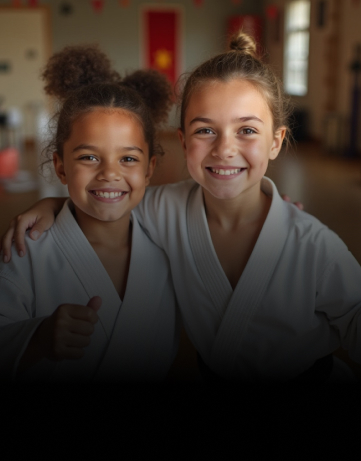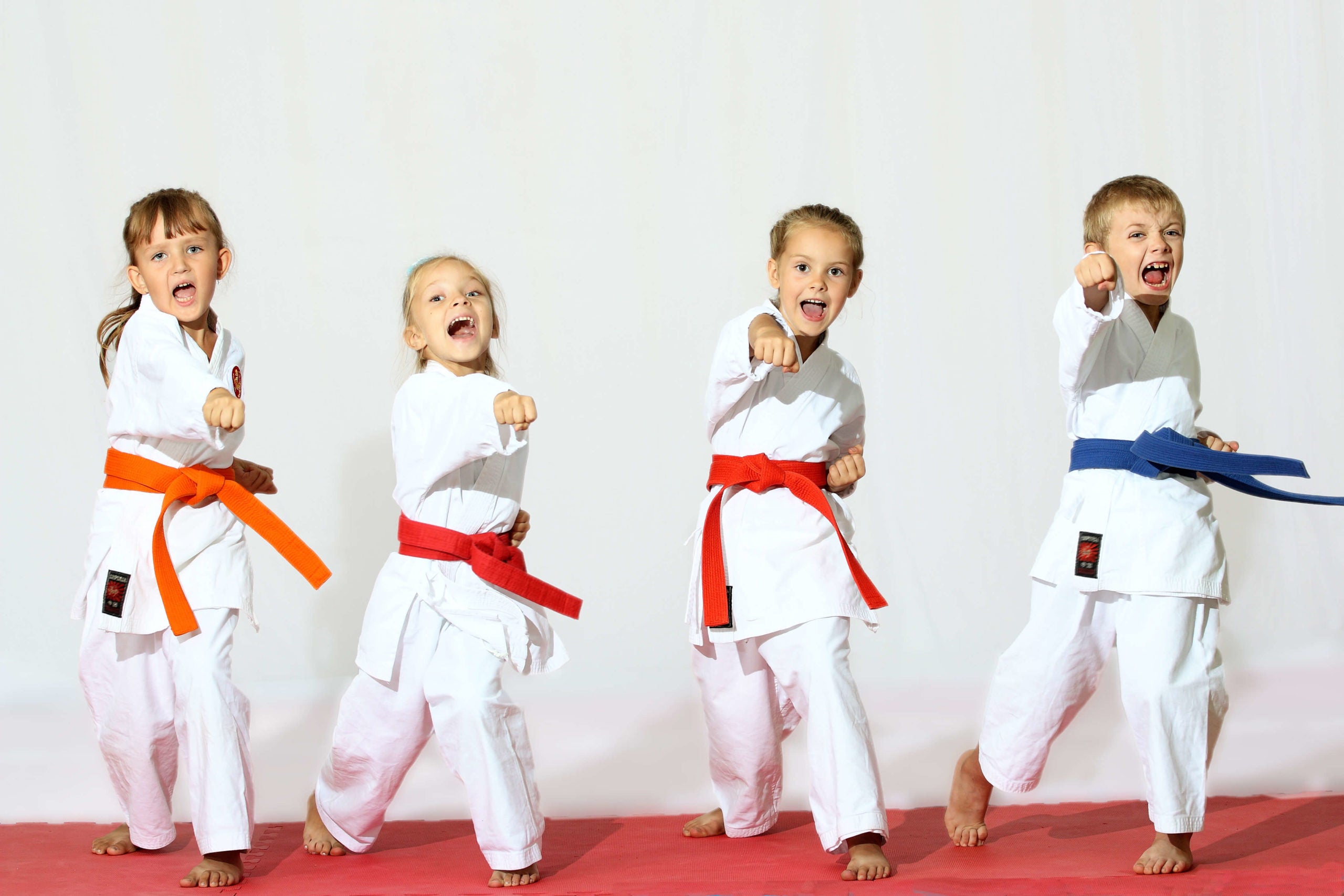Exactly How Martial Arts for Kids Can Increase Confidence and Self-control in Youthful Martial Artists
Karate for kids uses a distinct possibility to build self-confidence and discipline in young martial artists. As they find out new methods and face obstacles, they not only acquire abilities yet also create a solid sense of self-respect. This organized setting motivates them to value the trip of improvement. Just how does this training convert into their day-to-day lives? Discover the much deeper links that make karate greater than just a sport.
The Value of Self-confidence in Childhood Development
Confidence is a crucial foundation in childhood years development. When you nurture your child's self-confidence, you encourage them to encounter obstacles, take dangers, and reveal themselves freely. Kids with confidence are much more going to discover brand-new tasks and social circumstances, which can cause enduring friendships and important experiences.Encouraging your child to tip out of their convenience area cultivates strength. They find out that failing isn't completion however rather a stepping stone to success. By celebrating their achievements, despite exactly how small, you help them recognize their capacities and worth.In this trip, assistance and positive reinforcement from you play an important role. Whether it's via appreciation or merely being existing, your involvement improves their confidence. As they expand, this confidence ends up being a lifelong property, outfitting them to browse both obstacles and chances with a solid feeling of self.
How Martial Arts Shows Discipline and Focus
Karate helps you construct self-control and focus via its organized training regimen. As you exercise mindfulness throughout each session, you'll find out to concentrate much better both on and off the floor covering. Plus, establishing and accomplishing objectives in martial arts strengthens your ability to remain committed and conscientious.
Structured Training Routine
While you engage in karate training, you'll quickly uncover how an organized regimen infuses self-control and emphasis in young professionals. Each course complies with a specific layout, including workouts, technique method, and sparring. This uniformity instructs you to commit and appreciate the process to renovation. As you discover types and strategies, you develop a sense of duty for your own progress.The structured atmosphere urges you to set objectives, whether mastering a new belt or improving a kata. You'll find that remaining focused during drills and courses hones your focus. The technique you grow in karate extends past the dojo, positively affecting your schoolwork and everyday regimens. Each session reinforces the significance of devotion, aiding you become a much more self-displined person.
Mindfulness in Practice
As you practice martial arts, you'll locate that mindfulness ends up being an important part of your training. Each step needs your complete attention, assisting you stay focused on the present minute. You'll find out to ignore diversions and focus on your breathing, movements, and objectives. This increased understanding hones your reflexes and boosts your discipline.During sparring or kinds, you'll discover the importance of being mentally existing - Karate Salisbury MD. You'll observe exactly how this focus not only boosts your strategy yet additionally constructs your self-confidence. By practicing mindfulness in karate, you cultivate perseverance and durability, crucial attributes that extend past the dojo. In this way, martial arts shows you to harness your mind, aiding you establish a disciplined approach to obstacles both on and off the floor covering

Goal Setup Techniques
Setting objectives in karate isn't almost gaining belts; it's a powerful means to cultivate technique and focus. When you set certain, achievable targets, you produce a roadmap for your progress. For example, instead of just intending to boost your kicks, try concentrating on mastering a specific strategy monthly. This approach keeps you determined and engaged.Breaking down larger goals right into smaller sized, manageable steps aids you track your progress and celebrate little triumphes in the process. Whether it's improving your position or enhancing your sparring endurance, every objective enhances your dedication. As you accomplish these objectives, you'll build self-confidence in your abilities and establish a strong sense of self-control that extends beyond the dojo right into day-to-day life.
Structure Resilience Through Martial Arts
Fighting style, particularly karate, provides children a special opportunity to develop durability in an encouraging setting. In courses, they deal with obstacles that press their limits, whether it's sparring or mastering a new technique with a partner. Each problem, like mlb scores 2021 a missed kick or a shed suit, comes to be an opportunity to find out and grow.As they exercise, children find out to welcome pain and maintain attempting, even when things get tough. They discover that failure isn't completion; it belongs to the journey. This way of thinking aids them recover stronger, not just in the dojo, but in everyday life.With each obstacle they get over, your child builds self-confidence in their capacity to take on barriers, fueling their decision. With martial arts, they'll recognize that strength isn't practically physical strength; it has to do with psychological grit and determination, empowering them to face whatever life tosses their way.
The Role of Regard in Martial Arts Training
Respect is a fundamental principle in karate training, fostering a society of self-control and friendship among pupils. When you step onto the dojo flooring, you're not just learning strategies; you're also learning to value your trainers, peers, and the art itself (Karate Salisbury MD). Bowing at the beginning and end of course isn't just a procedure; it represents your acknowledgment of others' initiatives and dedication.As you develop common respect, you'll find it boosts your knowing experience. You'll pay attention much more diligently to your trainer and gain insights from fellow trainees. This atmosphere urges useful criticism and assistance, allowing every person to grow together.Moreover, respect cultivates self-control. Acknowledging the worth of difficult job and humility assists you remain focused on your training. Subsequently, this respect equates right into your everyday life, enhancing your communications and relationships outside the dojo. With martial arts, you learn that regard is essential for personal development and community building
Establishing Objectives and Achieving Success in Karate
Social Abilities and Teamwork in the Dojo
While training in the dojo, kids normally create vital social skills and teamwork capacities. As they practice alongside peers, they discover to interact efficiently, share area, and support one another. Each class offers possibilities for cooperation, whether it's throughout companion drills or group exercises. This teamwork cultivates relationships and produces a sense of belonging, making the dojo a nurturing environment.Kids also gain useful conflict resolution abilities. When they come across difficulties, such as disputes throughout sparring, they discover to browse these scenarios constructively. They practice patience and compassion, comprehending that everyone has various strengths and weaknesses.Moreover, getting involved in group tasks cultivates a feeling of responsibility. You'll see your child finding out to depend on colleagues and take duty for their function in a group. These experiences not just improve their fighting styles trip but likewise equip them with social devices they'll carry right into other areas of life.

The Long-Term Conveniences of Karate Beyond Youth
As children mature and shift right into their adult years, the advantages of karate expand far past the dojo. You'll locate that the discipline and focus found out through karate can translate into your academic and specialist life. Establishing and achieving objectives in martial arts promotes a solid job values, which can push you to stand out in any kind of endeavor.Moreover, the confidence got from understanding techniques and sparring can improve your self-worth, helping you deal with obstacles head-on. This colgate basketball durability ends up being very useful as you encounter the uncertainties of adulthood.Additionally, the social skills developed through teamwork and camaraderie in the dojo can result in much better connections in both expert and personal balls. You'll discover to interact efficiently, willpower problems, and construct an encouraging network.Ultimately, karate forms not simply skilled martial musicians, yet well-rounded individuals prepared to handle the globe.
Often Asked Concerns
What Age Is Best to Start Martial Arts for Children?
You can start karate as early as age four or five, but it frequently depends upon your youngster's maturation and rate of interest. Finding a class that suits their age and energy level makes a huge difference.
Exist Any Kind Of Health Advantages From Practicing Karate?
Yes, exercising karate deals countless health and wellness advantages. You'll improve your control, adaptability, and toughness while increasing cardiovascular health and fitness. And also, it improves emphasis and mental health, making it a superb selection for overall physical and mental wellness.
Just How Often Should Children Attend Martial Arts Courses?
You should motivate your kids to participate in karate classes at the very least two to 3 times a week. Uniformity aids them discover strategies properly and establish skills, making their experience more pleasurable and satisfying over time.
Can Karate Assist With Managing Stress And Anxiety in Children?
Yes, karate can help manage anxiety in kids. It instructs focus and self-constraint while giving a risk-free electrical outlet for power. You'll notice your kid growing extra positive and tranquil as they exercise routinely.
What Equipment Is Needed for Kids Beginning Karate?

Comments on “Legacy Martial Arts Salisbury – Train with Experienced Instructors in a Motivating Setting”